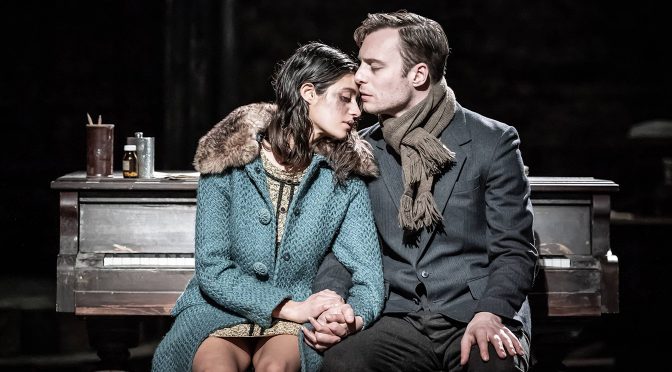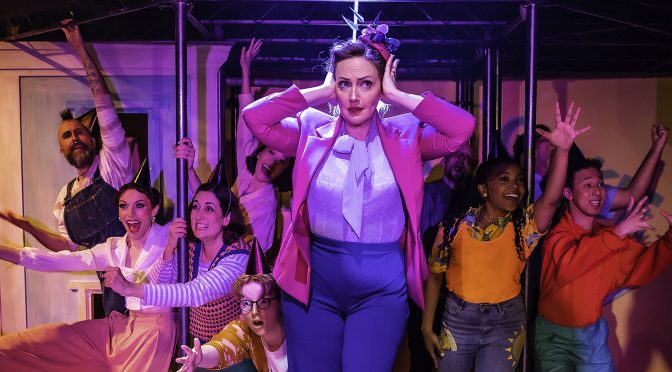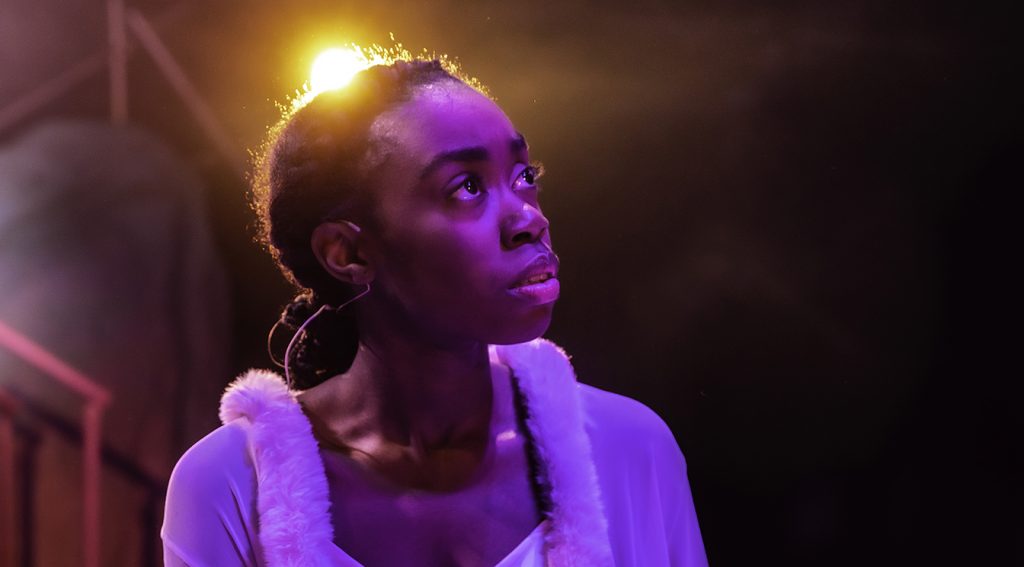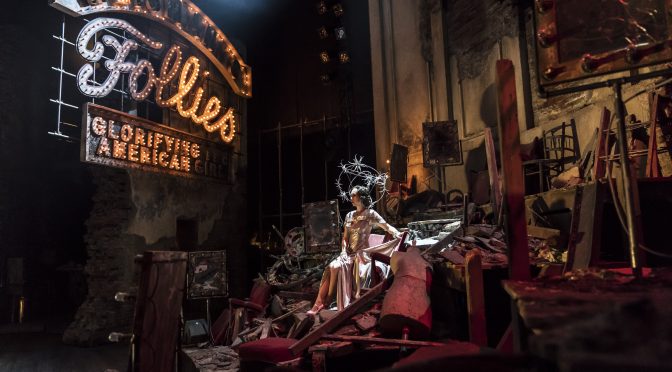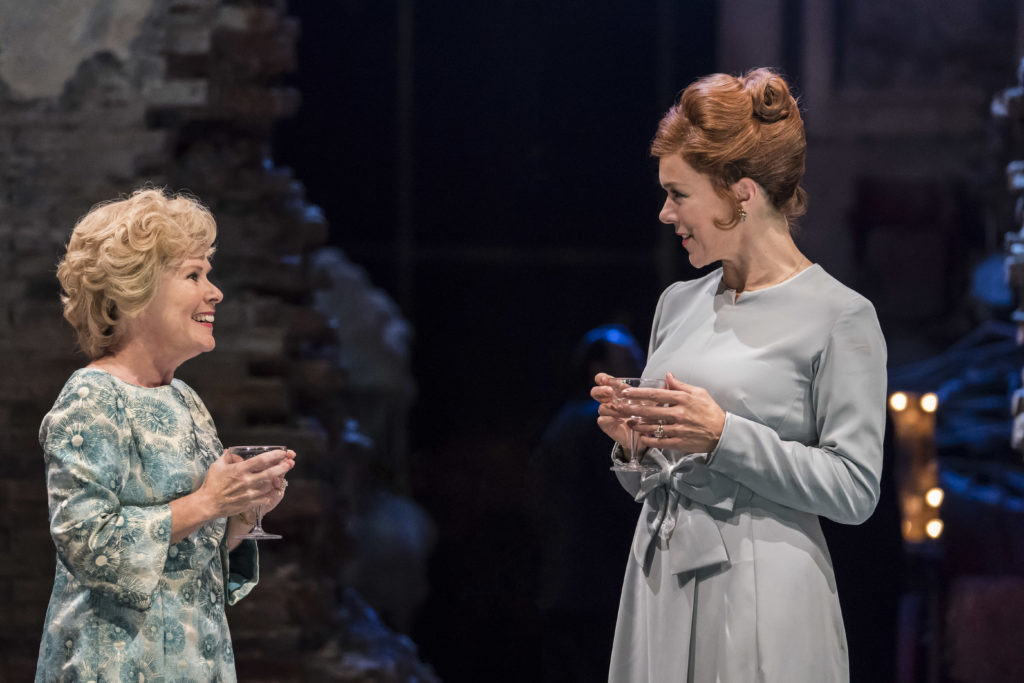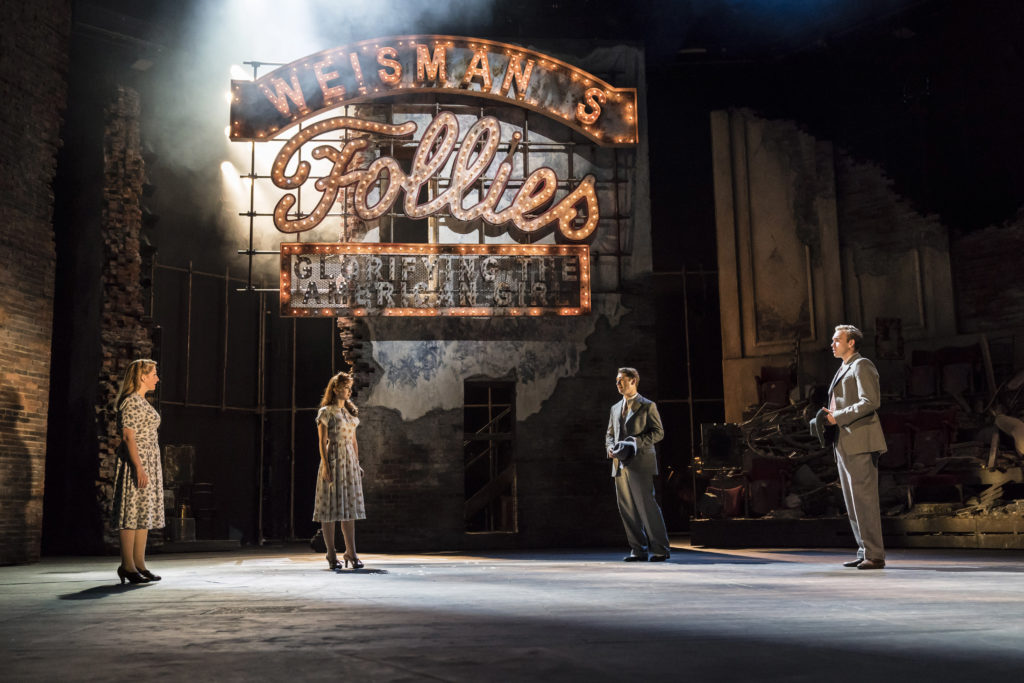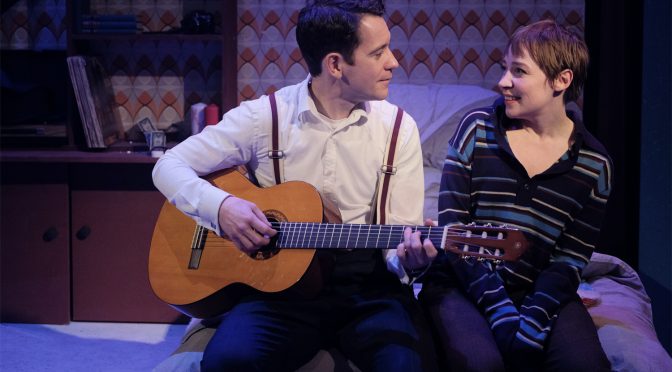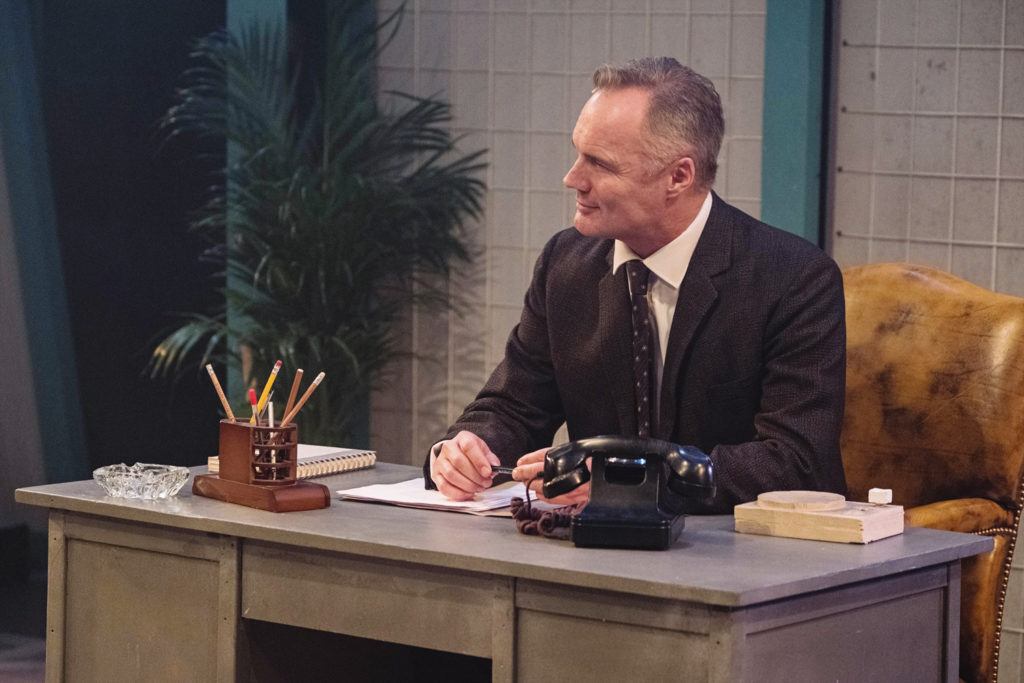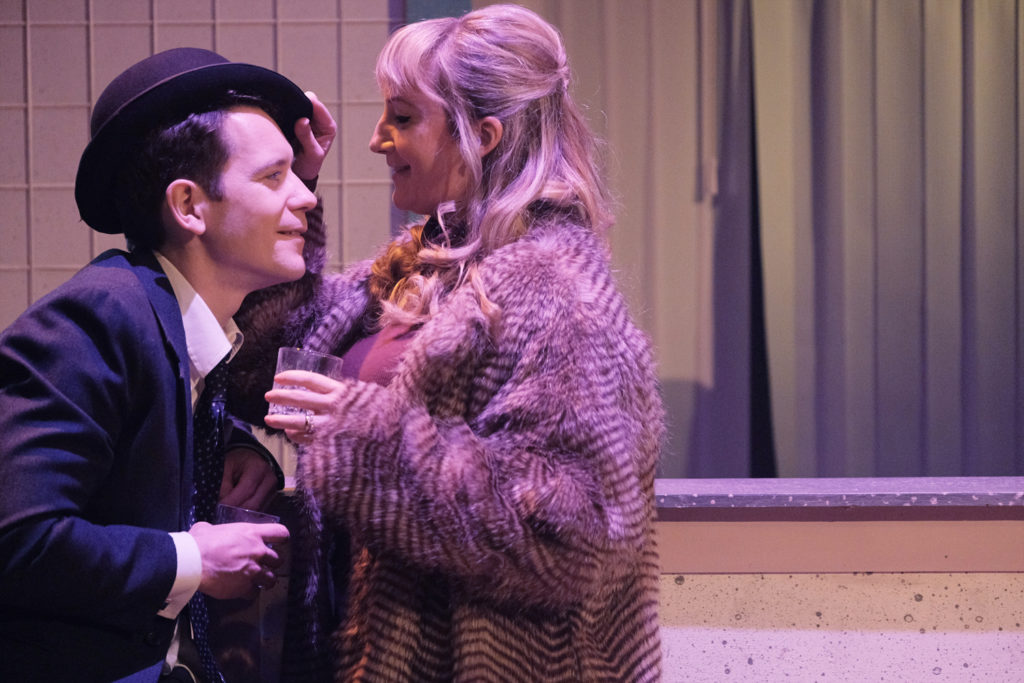All the tragic romance in Paweł Pawlikowski’s 1998 film is present in this adaptation from Conor McPherson, directed by Rupert Goold. The story of two musicians, Wiktor and Zula, separated by the titular conflict when he defects to France, is intense; from passion filled first meeting, to damaging co-dependency, and a depressing finale.
Cold War is a play with music rather than a musical but there are a lot of songs. Under the musical direction of Jo Cichonska the show sounds great. First there are folk songs: Wiktor is collecting them with his lover Irene (a superb performance from Alex Young) when he meets Zula. The traditional music is re-arranged throughout the show to great effect. But we also get new compositions from Elvis Costello. It’s all interesting and subtle, complimenting and commenting on action rather than being the focus.
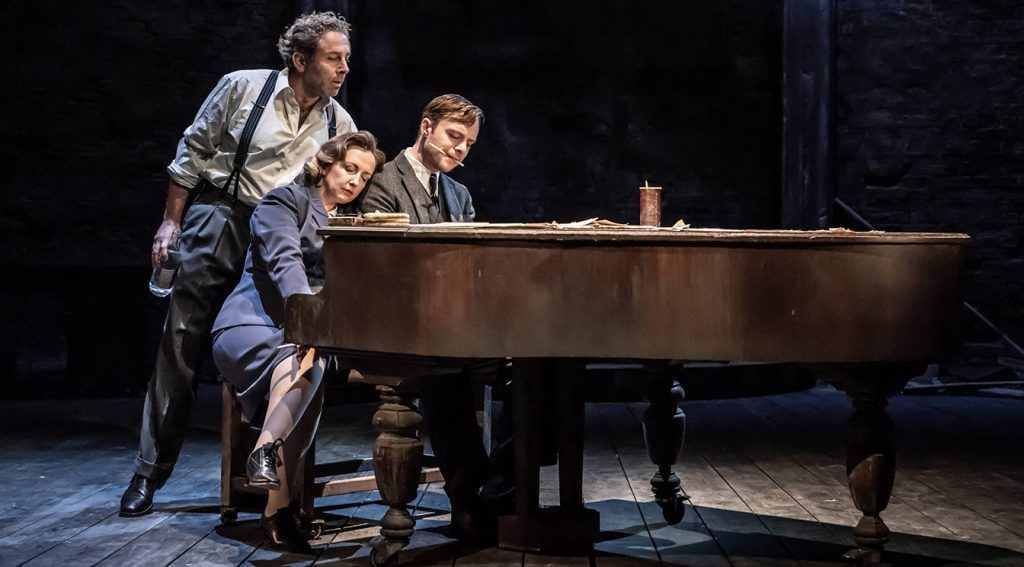
There’s more than the lovers to consider. Questions of art as propaganda and the role of nationalism follow our musicians, most notably in the form of Kaczmarek, a character Elliot Levy skilfully develops from party apparatchik to impresario. The big themes are thin at times, the politics cursory. But there’s plenty to think about and Goold powers through. Then there’s a lot of talk of freedom – how that relates to creativity. So, we’re very much in tortured artist territory. Wiktor and Zula want to do something new and become frustrated.
As trigger warnings state, the outcome for the couple is awful. There are efforts not to glamorise what happens. Wiktor and Zula make interesting anti-heroes that challenge how stylish the production is. Paule Constable’s excellent lighting design has seductive moments (such sexy spotlights) but also harsh clinical glares. Goold is too smart to make the show a straightforward tearjerker – credit to him – but it is odd programming for the festive season.
It’s with the lead performances, from Anya Chalotra and Luke Thallon, that the show really succeeds. Thallon conveys his character’s pain cleverly – Wiktor is a man who hides much. Chalotra is a revelation, full of humour and magnetism while showing a mania that the role requires. She has a sweet voice, and, even tougher, has to sing badly at times (oh, and they both do drunk very well). The couple have a marvellously natural way about them, and for a lot of the time you believe they have fun together. Neither passion nor antagonism are overplayed. Chalotra and Thallon make sure you never quite know what’s going to happen. They make the show exciting and provide a highlight in what might otherwise be just too grim.
Until 27 January 2024
Photos by Marc Brenner

